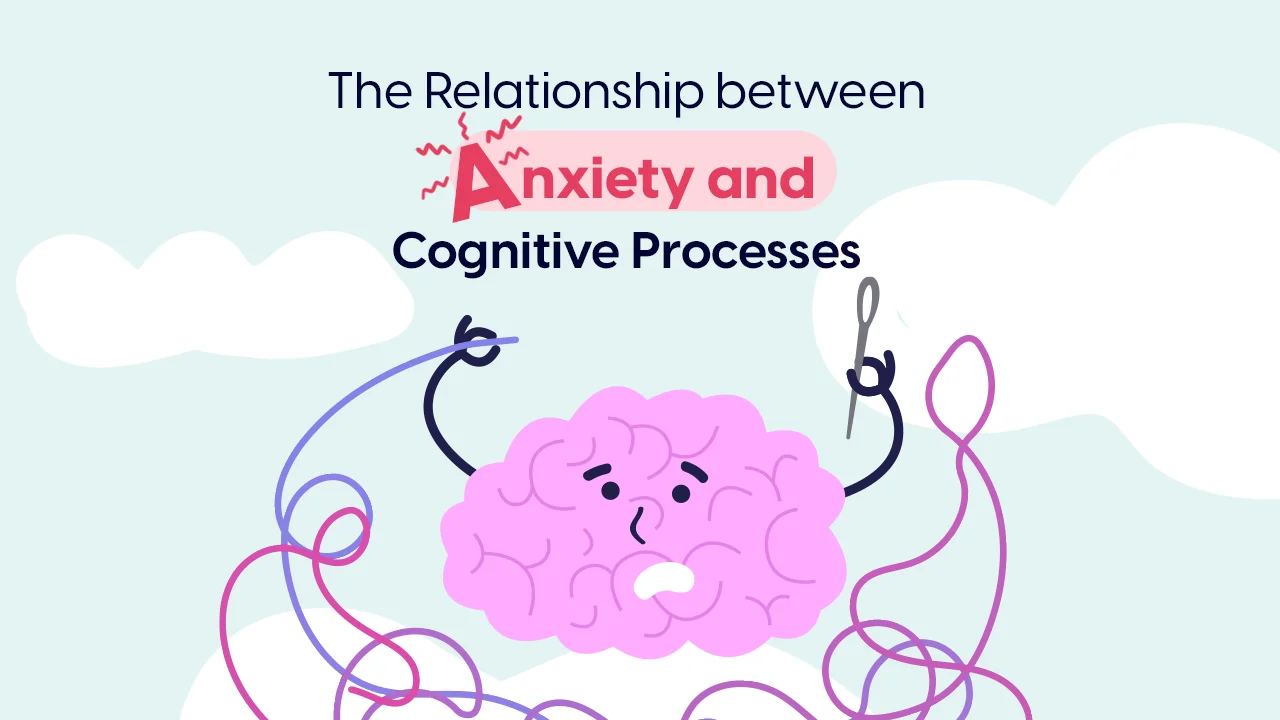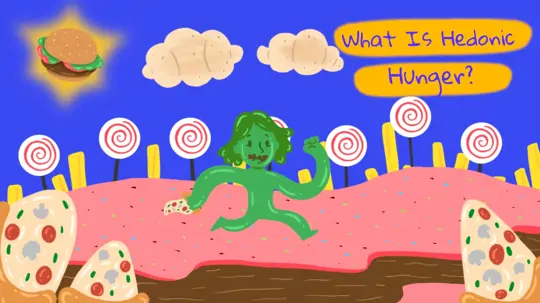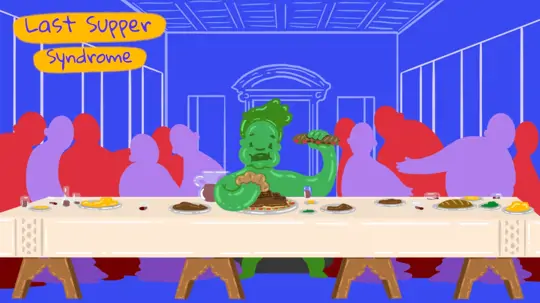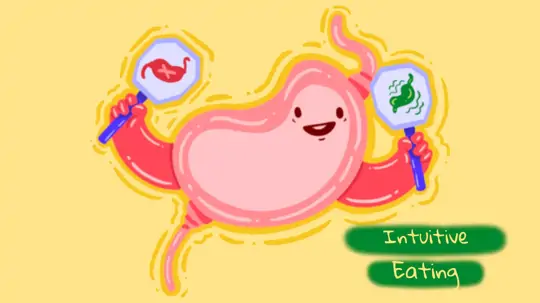
Start feeling better today!
Connect with your therapist today and take control of your life like our 850.000 happy clients.
Get StartedAnxiety can be dealt with in a number of ways. Because anxiety is known to be highly related to the cognitive system and processes, and the function of anxiety is to promote rapid detection of threatening situations, we will approach anxiety from the perspective of cognitive functions in this article.
Anxiety: What is It?
Anxiety is a physical and mental state induced by the perception of danger or threat. Anxiety is defined as a state of extreme fear and worry, and it is one of the most common stress reactions.
Anxiety is a complex phenomenon that can be studied in a number of ways. Individual differences may be observed in populations of people with and without disorders. When a person is exposed to stimuli, the cognitive system's pre-attention and attention processes kick in.
Anxiety is primarily a cognitive issue, and cognitive therapy has been shown to be effective in the treatment of anxiety disorders, possibly due to differences in the cognitive system functioning in patients with clinical anxiety disorders.
In order to assess anxiety, at least three different reaction systems must be defined: behavioral, physiological, and verbal response systems.
Understanding and Defining Anxiety
Experimental and social cognitive psychology are the two main domains that can be used to explore anxiety. In terms of research, experimental cognitive psychology has a number of advantages over cognitive social psychology.
To name a few advantages, it allows for the assessment of pre-conscious processes and is less susceptible to certain bias factors that may overcome self-report data in social cognitive psychology.
Many studies in the experimental cognitive domain suggest that people with high and low anxiety levels are different. Several theories have been proposed to explain anxiety. Among them are Gray's "neuropsychological theory," Beck's "schema theory," and Bower's "relational networks theory."
Anxiety's evolutionary significance and role in facilitating the early identification of potential dangers have been discovered to be of particular theoretical interest.
Anxiety and Cognitive Processes
The six major categories of cognitive processes are memory and learning, complex attention, language and language processing, executive functions, social cognition, and perceptual and motor functions.
The relationship between anxiety and cognitive processes has gotten a lot of attention in recent years. The ability to direct cognitive processes toward a specific goal is known as cognitive control.
Anxiety has been linked to the ability to direct attention and other cognitive processes (cognitive control) in studies. Multiple cognitive processes and cognitive control have been shown to become skewed in people who suffer from anxiety.
Anxiety is caused by excessive processing of threatening materials that are exposed during the continuation of actions that should be continued. At this point, it is possible to talk about an overdeveloped threat processing mechanism.
This advanced threat processing mechanism is said to disrupt a variety of cognitive processes, including observation and response to the environment. Individuals with anxiety devote their attention to the threat, first with early automatic cognitive processes and then with constant attention, according to researchers.
Anxiety has also been shown to have negative effects on short- and long-term memory, as well as memory manipulation. Anxiety, according to the researchers, depletes the resources required for good working memory performance and increases the chances of unfavorable information entering working memory.
In a study conducted with American adults without a diagnosis of depression in the United States, the link between verbal, visuospatial, and recall performances of working memory and anxiety and stress was investigated. Anxiety was found to have a negative correlation with working memory performance as a result of the study.
Anxiety and cognitive abilities, particularly working memory, have been shown to be linked in both directions. This link is defined in two ways because anxiety can be triggered by cognitive impairment. Excessive attention focused on mistakes has also been linked to a reduction in the cognitive control resources needed for behavior correction, according to the literature.
What is the Psychological Support Dimension in Anxiety?
According to the literature, anxiety disorders are frequently misdiagnosed and thus cannot be treated. Anxiety is a tense, worried, and anxious experience that cannot be avoided, and it is difficult to relax when in this mood-state.
It takes a lot of effort to keep your cool, but you can't help but feel uneasy and irritated, fearful or anxious that something terrible will happen at any moment; it's a situation where this and many other similar events and feelings occur.
Furthermore, cognitive functions that are important in our daily lives, such as our ability to manage our attention and memory, particularly working memory, have been discovered to have a negative effect on both sides.
While anxiety is said to have a negative impact on cognitive processes, it is also claimed that cognitive inadequacies can cause anxiety. So, what kind of help is available in this case?
Psychotherapy, medication, or a combination of the two are the most effective treatments for anxiety disorders. Cognitive-behavioral therapy is the most evidence-based type of psychotherapy.
Sources
- Bandelow, B., Michaelis, S., & Wedekind, D. (2017). Treatment of anxiety disorders. www.dialogues-cns.org Eysenck, M. W. (1992). ANXIETY: THE COGNITIVE PERSPECTIVE.
- Grant, D. M., & White, E. J. (2016). Influence of Anxiety on Cognitive Control Processes. Oxford Research Encyclopedia of Psychology, February, 1–26. https://doi.org/10.1093/acrefore/9780190236557.013.74
- Lukasik, K. M., Waris, O., Soveri, A., Lehtonen, M., & Laine, M. (2019). The relationship of anxiety and stress with working memory performance in a large non-depressed sample. Frontiers in Psychology, 10(JAN), 1–9. https://doi.org/10.3389/fpsyg.2019.00004
- Urban, S., & Raś, P. (1998). Treatment of anxiety disorders. Wiadomości Lekarskie (Warsaw, Poland : 1960), 51(1–2), 82–89. https://doi.org/10.4135/9781452229546.n28





